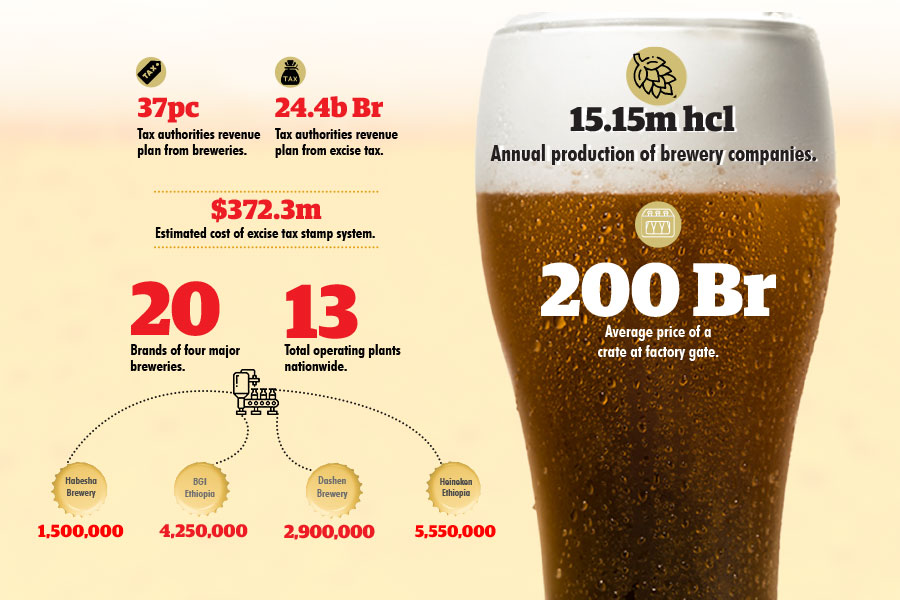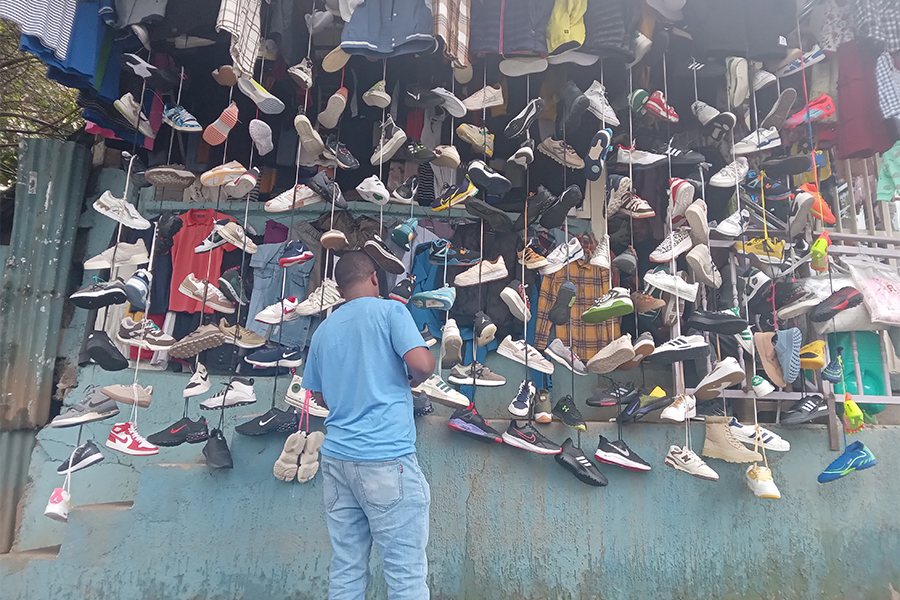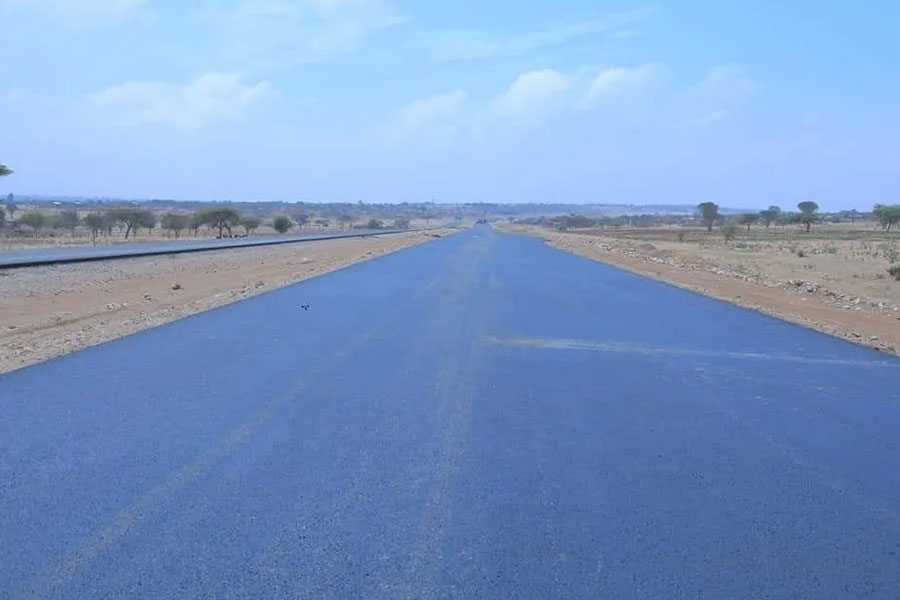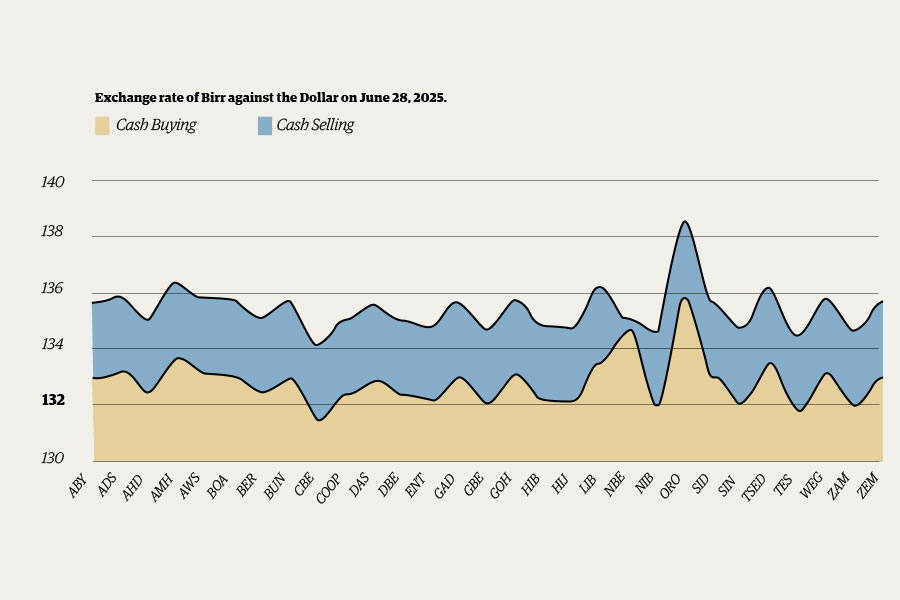
Life Matters | Aug 10,2024
The year-end report from senior officials of the Ministry of Trade & Regional Integration (MoTRI) has cast a pall over parliamentarians, as previously anticipated boosts in export earnings following the cessation of the northern war were conspicuously absent. Instead, the treasury’s ongoing struggles with foreign currency shortages have been compounded by an 11.9pc drop in export earnings this year, totalling 3.2 billion dollars.
Agricultural commodities formed the backbone of the country’s earnings, contributing 2.5 billion dollars, with manufacturing and mining bringing in 370 million dollars and 206 million dollars, respectively. The report signals a significant downturn from the 2021/2022 fiscal year, where total merchandise export earnings peaked at a historic 4.1 billion dollars. The lion’s share of this revenue — 53pc — was generated by coffee, Ethiopia’s primary export, with a 26pc surge in international coffee prices.
However, the tide turned in the current fiscal year, as the value of Ethiopia’s main coffee export, Arabica, plunged by 35pc. The double blow of increased production in Brazil and a global economic deceleration drove down prices, dashing Ethiopians’ hopes of capitalizing on the previously favourable market. Parliamentarians expressed last week their deep concern at the persistence of rising inflation, coupled with an unexpected surge in contraband trade.
They also criticized the inconsistent supply of commodities and the widespread interference of unlicensed intermediaries in the market.
Tola Hailu, an MP from the Bale Zone in the Oromia Regional State, voiced his scepticism about the efficacy of the Ministry’s strategies in the fight against inflation and illegal trade.
“It’s hard to tell if there is a trade Ministry,” he told Fortune, questioning whether any efforts had borne fruit.
Tola asked the Ministry’s officials whether the franco valuta scheme — a system allowing importers to use their own foreign currencies to import goods — had positively impacted the availability of essential food items and cooking oil.
A total of 100 million dollars worth of goods, including 8.3 million quintals of sugar, 4.6 million quintals of rice, and 98.1 million litres of cooking oil, were imported under this scheme, the Ministry disclosed. However, Tola expressed concern that the scheme is opaque and hard to regulate, casting a shadow over its potential benefits.
“It’s a shaded practice that is difficult to regulate,” Tola told Fortune.
State Minister Kassahun Goffe, the highest-ranking official from the Ministry present at the meeting, rejected the implication that the Ministry had failed to protect the country's commercial interests.
“We’d not be here if we were not responsible and accountable,” said Kassahun.
His boss, Gebremesqel Chala, was in the south, voting for a referendum to determine whether Wellaita Zone should be elevated to a state. Kassahun argued that the current issues might have been caused by the imposition of a 70pc-dollar retention requirement from export earnings, alongside the generous margins offered by importing goods through franco valuta. However, he admitted that the Ministry was grappling with considerable amounts of contraband goods intercepted by the customs commission each week.
A long-serving MP, Ayele Negari, echoed this sentiment, highlighting that illicit trade networks have reached an all-time high nationwide.
“I could never imagine up to a billion Birr worth of contraband could be seized in a week,” he said.
The Federal Auditor General also raised concerns about the Ministry’s finances, asserting that they could not carry out proper financial audits. It revealed that up to a billion Birr had not been utilized in the previous fiscal year.
According to Meskerem Bahiru, the Ministry’s head of Corporate Affairs, the recent restructuring of the Ministry has caused complications in accessing older financial documents. She noted that the Ministry had not spent 59pc of its total approved budget of 1.1 billion Br in the fiscal year.
Meskerem blamed a prevailing fiscal squeeze disclosing that the Ministry’s request for 20 million Br additional budget from the Ministry of Finance was capped at 16 million a couple of weeks ago.
“We’re under serious budgetary constraints,” she said.
However, the Ministry’s responses did little to pacify Parliament’s Standing Committee for Trade & Tourism Affairs members, chaired by Asha Yahya. Vice Chair Asemahegn Asres expressed frustration at the falling trade volumes, particularly as the country is recovering from a two-year war.
“How could it decrease during a relatively peaceful year?” he pondered to the House.
Chairwoman Asha criticized the Ministry’s performance, noting a wide disparity between its perceived effectiveness and the lived reality of ordinary citizens.
“We’ll continue to voice the anguish the public feels,” said Asha.
The State Minister also addressed the issue of 200 million dollars in lost potential earnings from Khat exports, which he attributed to repetitive duties imposed by regional states. He asked for parliamentary support in removing export duties for processed and unprocessed hides, to fully leverage the country’s export potential.
Despite the challenges, Kassahun expressed pride in the Ministry’s accomplishments, including the ratification of the African Continental Free Trade Area (AfCFTA), as well as the issuance of 2.3 million services related to business license issuance and renewal. Only 400,000 of these were new business registrations and licenses with around half being issued online.
Economic experts highlight the need for a comprehensive study to understand the drop in export volume and propose solutions. They point to Ethiopia’s heavy reliance on agricultural produce, which accounted for 79pc of the export volume this year.
According to Tefera Berihun (Prof.), an economist at the University of Gonder, economies primarily dependent on agriculture are sensitive to fluctuations in international commodity prices. He suggested improving product quality to bolster Ethiopia’s position in the global market.
PUBLISHED ON
Jul 01,2023 [ VOL
24 , NO
1209]

Life Matters | Aug 10,2024

Fortune News | Jul 28,2024

In-Picture | Sep 14,2024

Delicate Number | Sep 28,2024

Radar | Aug 20,2024

Fortune News | Nov 24,2024

Fortune News | Jul 17,2022

Money Market Watch | Jul 06,2025

Radar | Mar 18,2023

Sunday with Eden | May 24,2025

Dec 22 , 2024 . By TIZITA SHEWAFERAW
Charged with transforming colossal state-owned enterprises into modern and competitiv...

Aug 18 , 2024 . By AKSAH ITALO
Although predictable Yonas Zerihun's job in the ride-hailing service is not immune to...

Jul 28 , 2024 . By TIZITA SHEWAFERAW
Unhabitual, perhaps too many, Samuel Gebreyohannes, 38, used to occasionally enjoy a couple of beers at breakfast. However, he recently swit...

Jul 13 , 2024 . By AKSAH ITALO
Investors who rely on tractors, trucks, and field vehicles for commuting, transporting commodities, and f...

Jul 5 , 2025
Six years ago, Ethiopia was the darling of international liberal commentators. A year...

Jun 28 , 2025
Meseret Damtie, the assertive auditor general, has never been shy about naming names...

Jun 21 , 2025
A well-worn adage says, “Budget is not destiny, but it is direction.” Examining t...

Jun 14 , 2025
Yet again, the Horn of Africa is bracing for trouble. A region already frayed by wars...